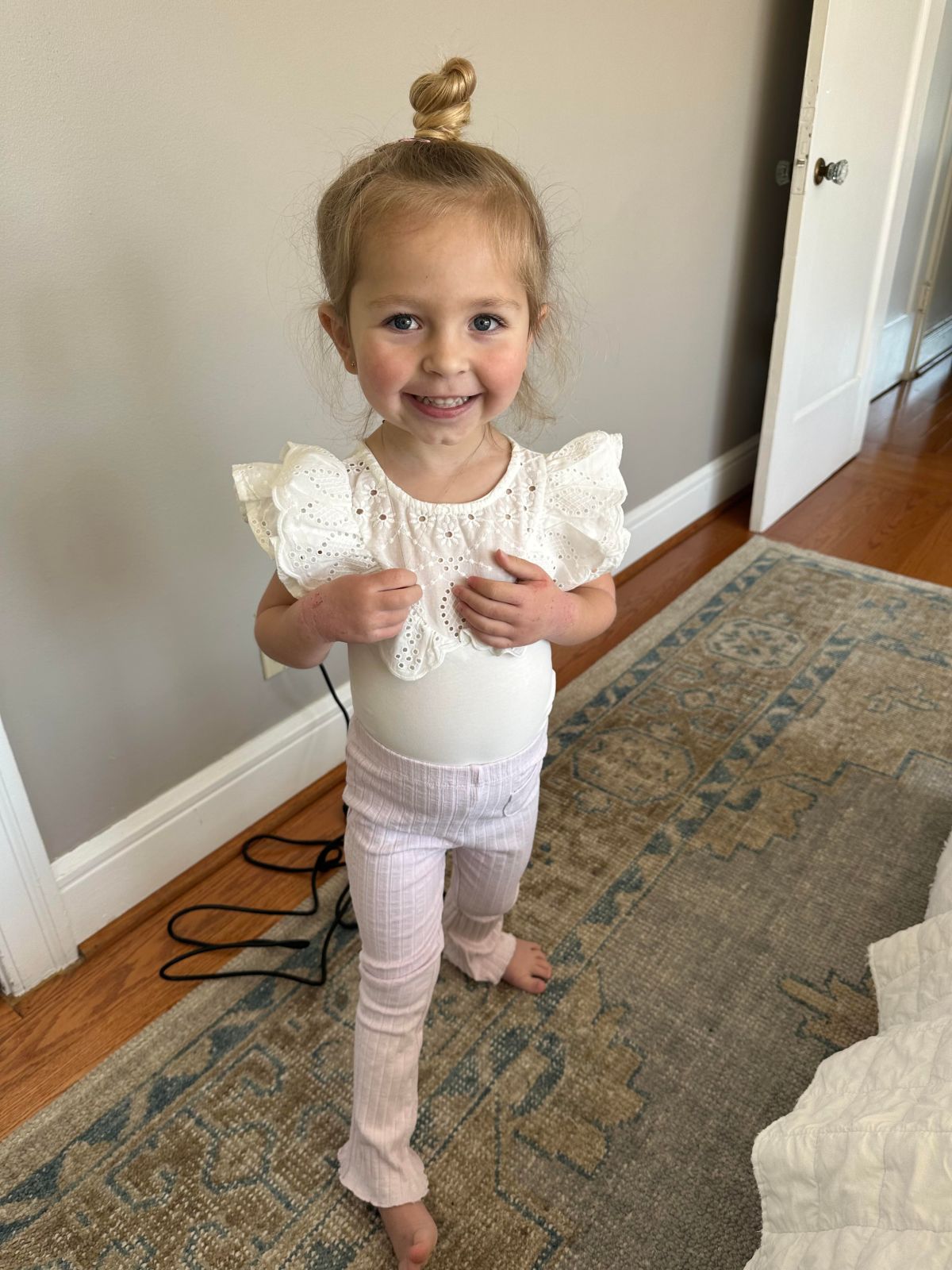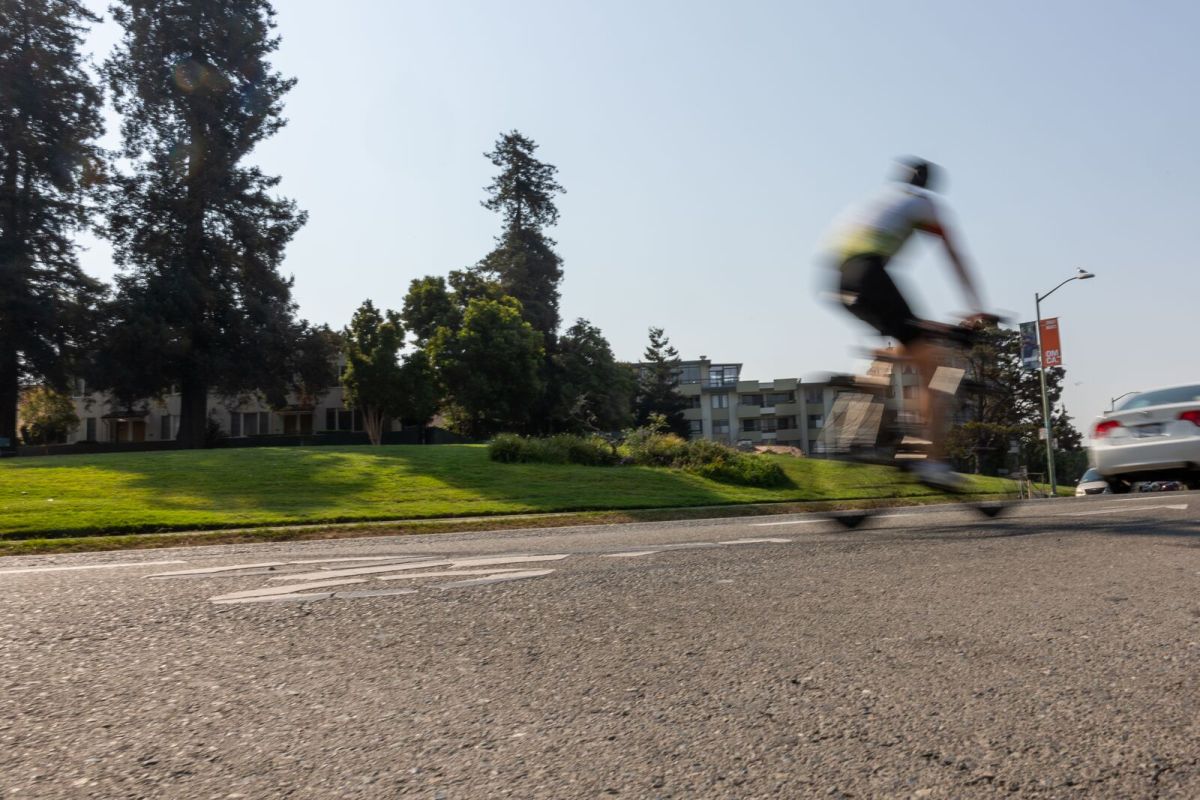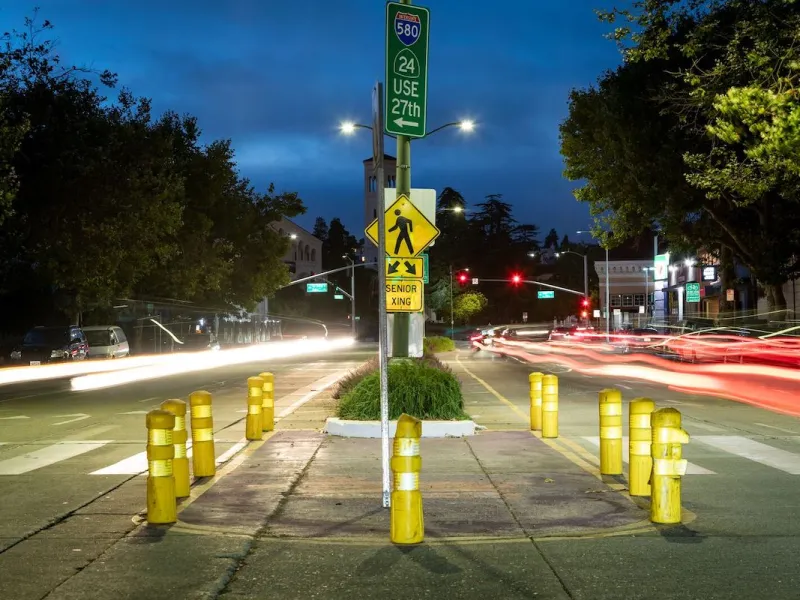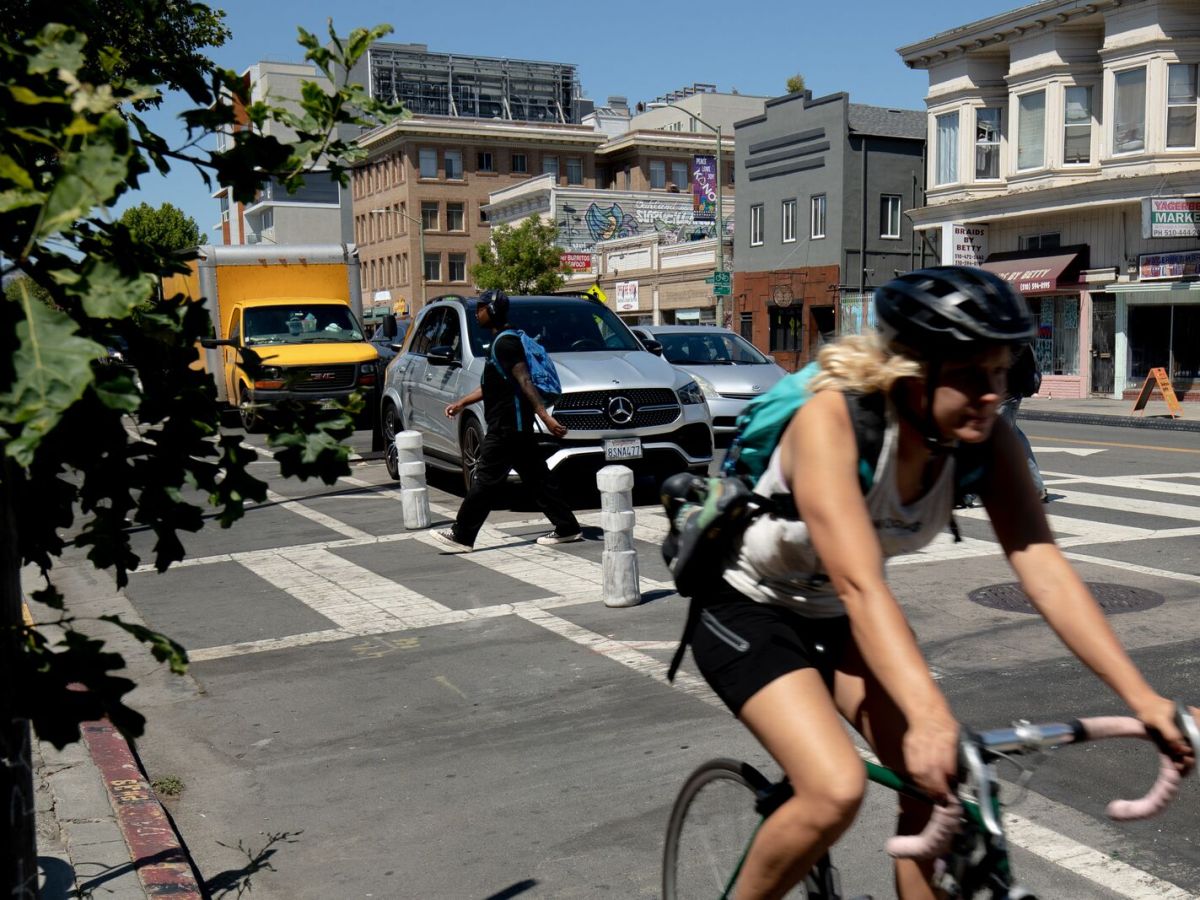Four-year-old Maia Correia was riding in a child’s seat on the back of her father Jadd’s bicycle on Lakeshore Avenue on August 6, wearing a helmet and strapped in with a belt. The ride was like any other until they neared Hanover Avenue. A man sitting in a parked car by the lake suddenly opened the driver’s side door without looking and hit the pair, knocking them into oncoming traffic.
Jadd and Maia tumbled onto the road. Cars stopped, and passersby helped them up. But Maia hit her head on the concrete and was not acting normally. Someone called 911. Paramedics showed up, but seeing Maia did not have too many scratches, they cleared her to go home.
Over the next few hours, Maia vomited, a known sign of a brain injury, said her aunt Sheila McCracken. Her parents spoke to a medical representative from Kaiser over the phone to perform cognitive tests. When she didn’t vomit again and appeared to improve, McCracken said the hospital told the parents to keep an eye on her. At nightfall, Jadd slept near Maia. Around 10:20 a.m. the following day, Maia fell unconscious.
“Police, firefighters, and paramedics arrived. They took her to Children’s Hospital,” McCracken told The Oaklandside. “Her dad went with her. When we got there, they had already rushed her to emergency surgery. On arrival, imagery showed a blood clot had formed between the brain and her skull.”
The doctors wanted to remove the clot and part of the skull to lessen the chances of her brain swelling. The surgery seemed to work, but within two days Maia went into a coma, said McCracken. On Thursday, doctors told the family “there was no hope left,” as they could not control the swelling and the blood had moved into her brain stem. Maia’s parents decided to disconnect her from life support.
“The Maia they knew was gone. She would never be able to receive our love anymore and wouldn’t be able to love us,” McCracken said.
Maia passed away on Saturday, August 12.
“She’s our forever four-year-old,” Maia’s grandmother Hydeh Ghaffari tearfully said at a meeting of the Oakland Bicycle and Pedestrian Advisory Commission earlier this month where she described the collision.
Ghaffari has been a bicycle rider for a long time and talked about the numerous car collisions she’d suffered. But she had never experienced anything so horrible as what happened to Maia and her father.
“We appreciate you sharing your story with us….hopefully this will make an impact with city staff as they’re thinking about designing streets,” Patricia Schrader, chair of the bike and pedestrian commission said during the meeting.
Maia’s tragic story, say members of her family, and others who rely on biking and walking to navigate Oakland, isn’t about a “random” accident. Rather, it has everything to do with Oakland’s lack of safe infrastructure for bicyclists. In Maia’s case, there was no protected bike lane to separate cars from bike riders, a type of infrastructure that can save lives and prevent many more serious injuries.
Everyone involved in the accident is devastated

The man who unintentionally opened his car door on Jadd and Maia, according to Ghaffari, immediately got out and “was devastated” that he’d injured a father and his daughter.
No one wants that person to get in trouble, Ghaffari said.
The Oakland Police Department investigated the collision and identified the man within days. The detective running the investigation told the Correia family that the man collapsed into his arms when he was told that Maia had died.
The Correia family told The Oaklandside they are considering suing the paramedic company for clearing Maia of injuries immediately after the collision. But they feel that one of the bigger issues is how Oakland’s streets are designed.
Oakland only has a few streets with truly protected bicycle lanes. One is the cycle track on Lakeside Drive, about a mile away from where Maia and her father were hit. This track is wide enough for multiple cyclists and is separated from the vehicle lanes and car parking spots by either concrete, bollards, or other physical obstructions. Much of Telegraph Avenue in Uptown includes a bike lane that is separated by segments of brick and concrete barriers.
But most biking lanes in Oakland, including on Lakeshore, are not protected. Instead, they’re wedged between vehicle traffic lanes and curbside parking for cars, with only painted lines separating them.
“A protected bikeway would have likely prevented this incident by fully placing bike riders outside the “door zone” and eliminating this danger,” said Robert Prinz, advocacy director for Bike East Bay.
The city’s existing bike plan, implemented in 2019, has called for protected bike lanes on Lakeshore Avenue. But at this time, there are no plans to build them. In recent years, the city has made roads safer through new infrastructure while it has paved them, and there is a paving upgrade scheduled for 2027.
More about protected bicycle lanes in oakland
In response to questions about the recent fatal collision, the city’s Department of Transportation said it is rapidly responding with a site evaluation and a review of collisions in the area by the city’s traffic engineering team. “Depending on the findings, any identified short-term improvements that could have prevented the crash will be implemented as soon as possible,” the city said in a statement. The city also said it will consider prioritizing changes along the Lakeshore corridor as part of its 2025-27 Capital Improvement Plan, which is the city’s long-term infrastructure plan guided by citizen input, technical reviews, and budget expectations.
George Spies, a volunteer for Traffic Violence Rapid Response who was at the bike and pedestrian commission meeting earlier this month, told The Oaklandside that he was “gutted” by the loss the Correia family is going through, especially because he had a young daughter himself who suffered a head injury at a playground when she was young. Luckily, his daughter recovered.
“It’s an awful tragedy and we hope that they can find peace,” Spies said.
Schrader, chair of Oakland’s bike and pedestrian commission, told The Oaklandside that this tragedy has made her think deeply about what needs to happen to make roads safer for pedestrians and cyclists. She noted that over the last few years, more people have wanted to reduce their carbon consumption, leading to more bike riders on city roads. But educating all people, especially drivers, about the need for greater safety around all these new cyclists has not kept up.
“The DMV test needs to update questions about driving near bikes and pedestrians,” Schrader said. “If we encourage people to bike, we should teach them better, as well.”
One lesson that could drivers from opening doors up on cyclists would be to teach people to open car doors with their opposite arms. Known as the “Dutch reach,” this maneuver forces vehicle occupants to turn their bodies around to see if cyclists or pedestrians are passing by before popping a door open.
McCracken said the Correia family will likely join bike advocates at future events that call for safer streets in Oakland. The family will hold a celebration of life for Maia in mid-September.
In the meantime, McCracken said Maia’s death has turned the whole family’s life upside down. They are especially devastated about what the loss means for Maia’s seven-year-old brother and her sister, just three months old.
“She was such an amazing, sweet girl. Full of life,” said McCracken. “She was so loud in the house. She would always be singing songs and playing with Barbies. It’s a devastating loss.”




